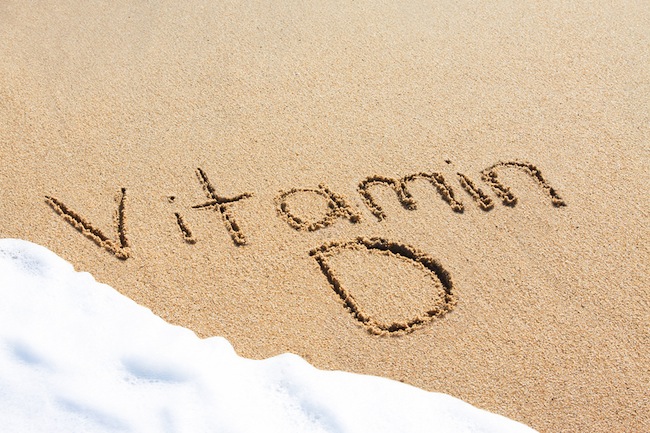- Make It Yourself Lavender Heart-Shaped Bath Bombs!
- 20 Things You Never Knew About “Down There”
- 12 Best Foods For Those Suffering From Arthritis Pain
- 12 Personal Hygiene Mistakes Almost Everyone Makes (Mom Never Told You About #4!)
- 15 Medicinal Plants And Herbs From The Cherokee People
- 12 Mind-Blowing Benefits Of Drinking Coconut Water During Pregnancy
- 12 Outstanding Winter Foods That Won’t Fatten You Up Like A Christmas Turkey
This One Vitamin is Crucial for Your Heart

Photo credit: bigstock.com
An ever growing stack of research studies is proving that vitamin D is vital for many of the functions in our bodies, including our heart. A new study shows that vitamin D can prevent heart disease and that low levels of this important vitamin are linked to an increase in the risk of developing heart disease.
According to research presented at the American College of Cardiology’s 63rd Annual Scientific Session, a deficiency in vitamin D is a risk factor for heart disease as well as coronary artery disease.
In what was the largest study of its kind to take a look at the relationship between coronary artery disease and vitamin D levels in the blood, a deficiency (less than 20ng/ml) was discovered in more than 70 percent of patients that were undergoing angiography, a test that observes the flow of blood through the arteries of the heart. Subjects with the lowest levels of vitamin D had a 32 percent increase in the severity of this disease that affected multiple vessels. The more severe the deficiency of vitamin D, the more progressive heart disease became. Subjects with vitamin D blood levels of less than 10mg/dl had an almost two fold increase in their risk of coronary atherosclerosis as subjects that had normal vitamin D levels.
This study evaluated almost 1,500 patients. Scientists noted that a deficiency in vitamin D appeared to be the cause, rather than the consequence, of atherosclerosis.
Continue to Page 2

Photo credit: bigstock.com
Another study has shown that a deficiency in vitamin D increases the risk of a poor neurological outcome after you have a heart attack. In fact this study showed that having low vitamin D levels after having a heart attack increased a person’s risk for poor brain function afterwards by as much as 7 fold!
Dr. Jin Wi presented his findings at the Acute Cardiovascular Care in Geneva, Switzerland in 2014 and he noted that when patients are resuscitated after a heart attack, the recovery of brain function was just as important as survival. So in addition to low vitamin D levels being associated with a higher risk of having a heart attack, low levels of this crucial vitamin can also lead to poor brain function after going into cardiac arrest.
Dr. Wi and his research team analyzed the clinical data from 53 subjects who were resuscitated after having a sudden cardiac arrest. These subjects were all unconscious and were hospitalized at the Severance Cardiovascular Hospital in Seoul, Korea. Subject’s neurological states were measured again six months after they left the hospital by using the Cerebral Performance Category (CPC). 65 percent of subjects with deficiencies in vitamin D had poor neurological outcomes 6 months later compared to 23 percent of patients who had normal levels of vitamin D in their blood. In fact, almost 30 percent of the subjects who had low vitamin D levels passed away within the 6 month period and all of the subjects who had normal levels of this vitamin were still alive 6 months after discharge from the hospital.
Continue to Page 3

Photo credit: bigstock.com
This is another study that shows how vital vitamin D is to our bodies, especially if you have a personal or family history risk of heart disease. Of course there are other factors that affect your risk of heart disease, including high blood pressure, high cholesterol, excessive alcohol consumption, smoking, and diabetes, but this is perhaps one of the easiest risk factors that you have control over.
SEE ALSO: Dementia and Vitamin D Deficiency: Is There a Link?
Vitamin D acts something like a hormone in our bodies, regulating as many as 200 genes. For one little vitamin, it does a massive amount of work in our bodies including:
- Regulates blood sugar levels in the pancreas
- Regulates blood pressure in the kidneys
- Stops abnormal cells from multiplying in the colon and breast
Safe sunlight exposure is one way to get vitamin D. You can also consume more foods that are high in vitamin D such as dark, leafy greens, fatty fish such as sardines, and dairy products. Read more about sources of Vitamin D.
These studies show that eating healthy does so much more for us than just provide for our everyday wellbeing, but it is vital when the body needs to repair itself after an injury. The capacity of our bodies to heal themselves is simply remarkable, if we give it the right nutrition to do so.
Sources:
































